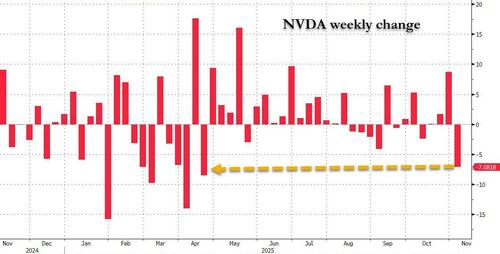South Africa is also going through its most significant retirement reform in history.
In October 2010 there were massive strikes across France against pension reform. Activist Jean-Baptiste Reddé’s slogan “Ecoutez la colère du peuple” (Listen to the people’s rage) became world famous as the symbol that epitomised public sentiment. “More than a decade later France is again (there) because of President Emmanuel Macron’s proposed pension reform that plans to make the French work longer, by pushing back the legal retirement age from 62 to 64 or reducing pay-outs for early retirees, ”’Blessing Utete, Managing Executive of Old Mutual Corporate Consultants wrote in an op-ed on Ebnet this week.
South Africa at the same time is also going through its most significant retirement reform in history.
The National Treasury has already tabled the proposed “two-pot system” which is scheduled to be implemented in March 2024, with a lot more other tax tweaks coming this year following the release of the national budget review in February.
The savings and retirement industry has gone through a few other changes over the years, according to, Nkululeko Kunene, Institutional Client Manager at PPS Investments, which she said has led to better retirement outcomes for South Africans. This included the industry moving from “all in priced” funds to transparent clean priced collective investments, which is a pricing method much easier to understand. There was the Retail Distribution Review, which was introduced in an effort for financial institutions to treat customers more fairly, she said, with a key focus being the move from commission-based to fee-based charging.
“There was a huge emphasis to professionalise the industry in order to ensure people are receiving sound advice at fair prices and from credible professionals. Further to that, we saw the arrival of Discretionary fund managers, who had Category II licenses and would build model portfolios for advisers who were previously only focused on risk products, further assisting in ensuring clients are placed in appropriate portfolios that match their risk profile,” she added.
But the most glaring difference between the local scenario and France is the levels of violent dissent from the public and retirement fund members. It is the impact of similar, yet more extreme, geopolitics on our own financial positions, which is “now (become) the winter of our discontent” as the famous opening line of Richard III by William Shakespeare stated.
According to the Manager Watch Annual Survey Survey of Retirement Fund Investment Managers released by Alexander Forbes this week, geopolitics and sustainability are what is shaping the local investment industry.
A proliferation of interest rate hikes, the Russia-Ukraine war and fears of a global recession put a drag on local investment performance for most of 2022. Yet, the survey showed, that market performance in the fourth quarter of last year managed to recover some of the losses over the previous three quarters.
But despite the reprieve, 2022 remained the global stock market’s worst year in more than a decade. The MSCI All-Country World Index recorded a negative return of 18% in 2022 from a robust return of 19% the year before. In US dollar terms, most sectors underperformed, while energy was the best-performing sector buoyed by growing supply concerns induced by the Russia-Ukraine war.
Another contributing factor, the survey revealed, was the prolonged Covid-19 outbreaks which disrupted economic activities across the world, with China – the largest importer and exporter in the world – most affected.
Global equities were negatively impacted by weak performance in emerging markets, the US, Europe and Japan. The S&P 500 Index suffered its worst performance in 14 years, recording a loss of 18.1% in 2022, compared to a strong return of 28.7% in 2021, in US dollar terms.
Global stock markets’ tumble and entry into bear market territory last year, has remained an ongoing discussion amongst SA money managers and has left investment portfolios vulnerable, according to the Alexander Forbes report.
The report stated that several South African companies have exposure to Russia and China amongst other emerging market regions. These exposures come in the form of owning Russian businesses or the establishment of offshore operations there. “The managers are weighing up Russian exposure through underlying companies as well as asset allocation decisions in terms of attractive asset allocation from emerging markets,’’ it said.
But despite SA equities somewhat bucking the global trend, with the JSE All Share Index recording a positive return of 4% in 2022, it was still a big fall from the robust return of 29.3% in 2021. SA bonds also outperformed local equities, with the All Bond Index returning a positive return of 4.3% in the year, from 8.4% in 2021.
But uncertainty is still the order of the day in SA, with interest rates continuing to go up, and economic growth going down. On the global stage, the attempt to position geopolitical events at this stage in the crisis is more likely to lead to the selling of risk assets after markets have already discounted the event, said Joannie Maass, Senior Client Investment Specialist – Alexander Forbes Investments.
But dealing with such uncertainty can be tricky because we as retail investors feel like we have little to no control over our futures. So, where to from here?
“It’s important to remember that your actions, not the market, are the biggest factor that determines if you will achieve your financial savings goals or not, said Maass.
“Experience shows that attempting to make financial decisions based on guessing what market movements will be will most likely lead to missed opportunities or losses.’’
She said, ‘’Investment success comes from keeping your savings invested over long periods of time and contributing as much as you can to your savings each month. Stick with an investment strategy that helps grow your investment value by more than inflation over time and thereby improves the chances of you reaching your goals.”
PERSONAL FINANCE















